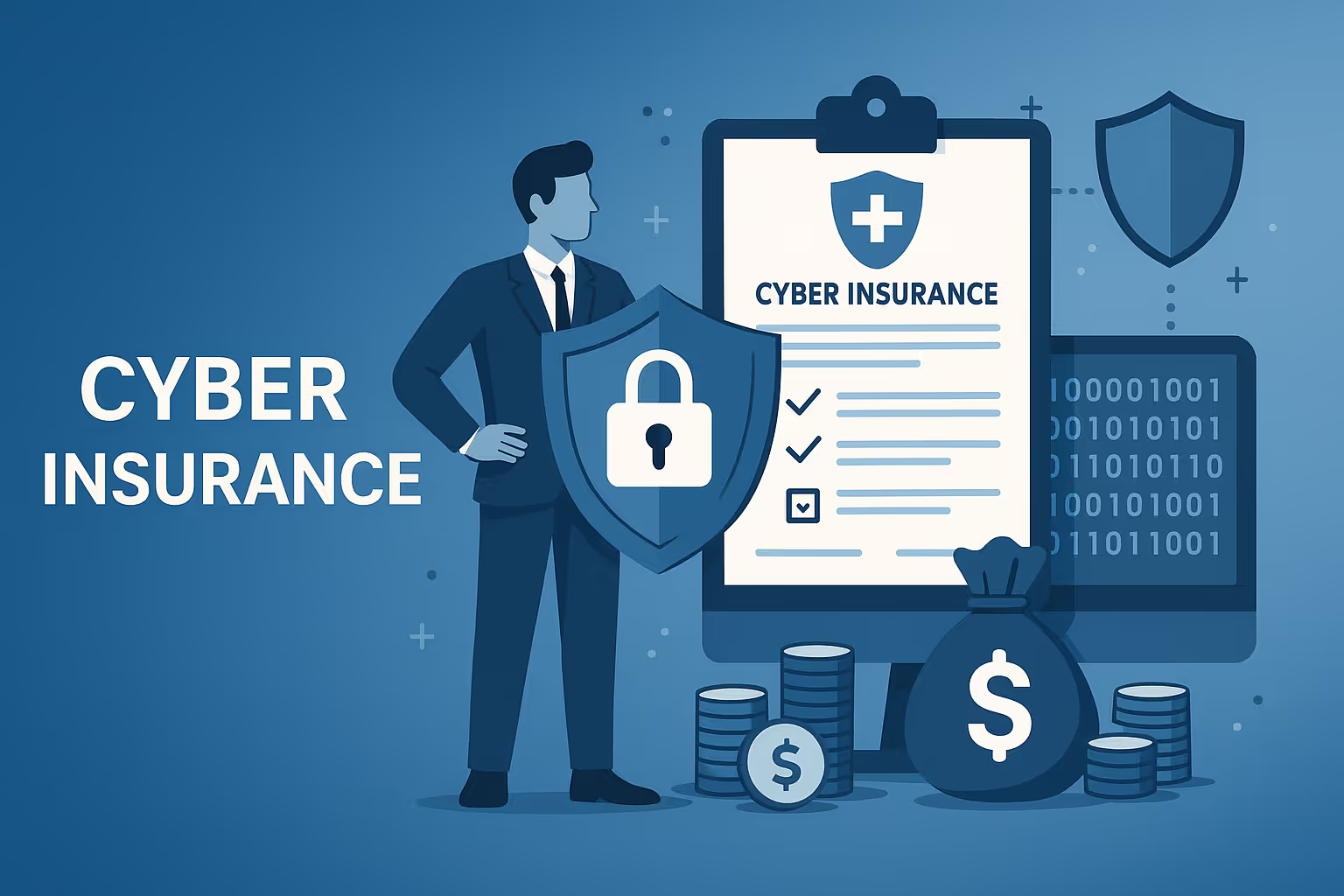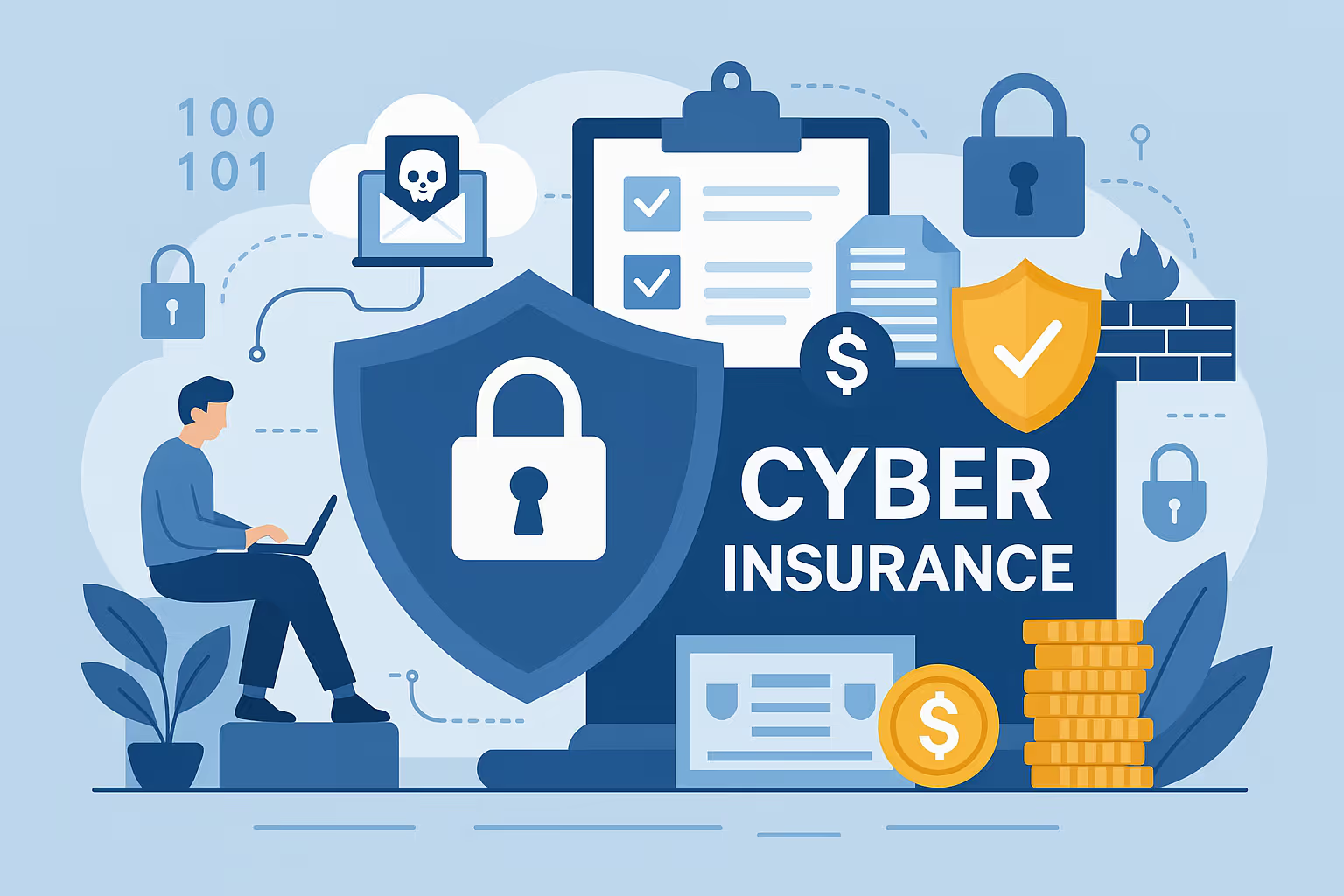
How to get...
For any company in the Hospitality / Travel / Tourism sector, the first step is to conduct a thorough assessment of your current cybersecurity measures and identify areas of vulnerability. This includes:
This assessment is essential because insurers rely on these details to determine risk levels and tailor your policy accordingly.
Next, research providers who specialize in the Hospitality / Travel / Tourism sector. Look for insurers with track records handling risks similar to those faced by hotels, airlines, and tour operators. Utilize the keyword phrase "how to get cyber insurance for Hospitality / Travel / Tourism" when researching online to locate industry experts and specialized offerings.
Insurance providers will require comprehensive documentation to assess your risk accurately. Be prepared to submit:
These documents demonstrate your commitment to mitigating cyber risks and help underwriters set precise coverage rates.
Once documentation is submitted, your chosen insurer will perform a detailed underwriting process. This step involves:
After underwriting, review your policy offer carefully. Ensure that it includes:
Finalizing your cyber insurance policy solidifies your investment in protecting your business against cyber threats and ensures that you’re following the correct steps for how to get cyber insurance for Hospitality / Travel / Tourism.

Who provides...
Organizations in the Hospitality / Travel / Tourism sector can obtain coverage from a range of providers offering cyber insurance for Hospitality / Travel / Tourism. These providers fall into three main types:
When evaluating providers, organizations should consider:
Businesses in this sector should leverage the insights provided by these different types of insurers, aligning their operational risks with tailored cyber insurance solutions.


Why need...
Cyber insurance for Hospitality / Travel / Tourism in the United States is vital because businesses in this sector handle large volumes of sensitive customer data, such as payment details, personal identities, and travel itineraries. These data points make hotels, airlines, and travel agencies prime targets for cybercriminals utilizing data breaches, ransomware attacks, and phishing schemes.
Cyber insurance for Hospitality / Travel / Tourism provides essential financial protection against the mounting costs of cyber incidents. A breach can result in significant financial losses, legal liabilities, and long-term reputational damage. With strict U.S. data protection regulations and heavy penalties for non-compliance, this industry faces elevated risks that make proactive insurance coverage a critical safety net.
By investing in cyber insurance for Hospitality / Travel / Tourism in the United States, organizations can secure tailored risk management tools and financial safeguards that help restore operations faster and maintain customer confidence amidst a landscape of ever-evolving cyber threats.
Cyber insurance coverage for Hospitality / Travel / Tourism includes business interruption protection that reimburses lost income if a cyber incident disrupts operations. Key aspects include:
This coverage is essential because downtime in hospitality and travel directly translates into lost bookings and degraded customer experiences. It supports regulatory compliance and the financial stability necessary to sustain operations during crisis periods.
Organizations benefit from cyber insurance coverage for Hospitality / Travel / Tourism by mitigating the impact of cyber extortion and ransomware incidents. This option typically includes:
Given the sector’s reliance on continuous operations and the sensitive nature of guest data, this coverage minimizes the financial and operational risks associated with ransomware attacks and extortion attempts, ensuring compliance and rapid recovery.
Cyber insurance coverage for Hospitality / Travel / Tourism in this category provides protection against regulatory actions following a data breach or cyber incident. It typically covers:
This coverage is crucial as U.S. hospitality and travel organizations must navigate complex regulations and potential penalties. It enhances operational resilience and financial security by ensuring that compliance failures and subsequent regulatory actions do not compromise the organization's viability.
Build Security with OCD Tech That Meets the Standard — and Moves You Forward
Contact Us
US hospitality, travel, & tourism firms need strong cybersecurity to protect guest data and secure insurance. Underwriters reward proven defenses.
Secure Your Business with Expert Cybersecurity & Compliance Today
Contact Us


Differences by State...
Each state’s unique regulatory environment influences the way organizations assess risks, manage compliance obligations, and structure their cyber insurance coverage. For companies in the Hospitality / Travel / Tourism sector, being aware of these differences ensures that the selected policy fits their operational needs and provides the best protection against evolving cyber threats.

Compliance & Frameworks...
Organizations in the Hospitality / Travel / Tourism sector face unique cybersecurity challenges, and adherence to established frameworks and regulations directly shapes cyber insurance for Hospitality / Travel / Tourism. Compliance not only assists in reducing risks but also influences coverage eligibility, premium costs, and overall policy conditions. Here are the most critical areas to consider:
Each of these frameworks and regulations structures the evaluation process for cyber insurance for Hospitality / Travel / Tourism. Insurers look for evidence of a strong cybersecurity posture, comprehensive policies, and proactive risk management – all of which help in reducing the likelihood of cyber incidents and ultimately can lead to better insurance conditions and lower premiums.

Audit. Security. Assurance.
IT Audit | Cybersecurity | IT Assurance | IT Security Consultants – OCD Tech is a technology consulting firm serving the IT security and consulting needs of businesses in Boston (MA), Braintree (MA) and across New England. We primarily serve Fortune 500 companies including auto dealers, financial institutions, higher education, government contractors, and not-for-profit organizations with SOC 2 reporting, CMMC readiness, IT Security Audits, Penetration Testing and Vulnerability Assessments. We also provide dark web monitoring, DFARS compliance, and IT general controls review.
Contact Info
.svg)
OCD Tech
.svg)
25 BHOP, Suite 407, Braintree MA, 02184
.svg)
844-623-8324
.svg)
https://ocd-tech.com
Follow Us
Videos
Check Out the Latest Videos From OCD Tech!
Services
SOC Reporting Services
– SOC 2 ® Readiness Assessment
– SOC 2 ®
– SOC 3 ®
– SOC for Cybersecurity ®
IT Advisory Services
– IT Vulnerability Assessment
– Penetration Testing
– Privileged Access Management
– Social Engineering
– WISP
– General IT Controls Review
IT Government Compliance Services
– CMMC
– DFARS Compliance
– FTC Safeguards vCISO